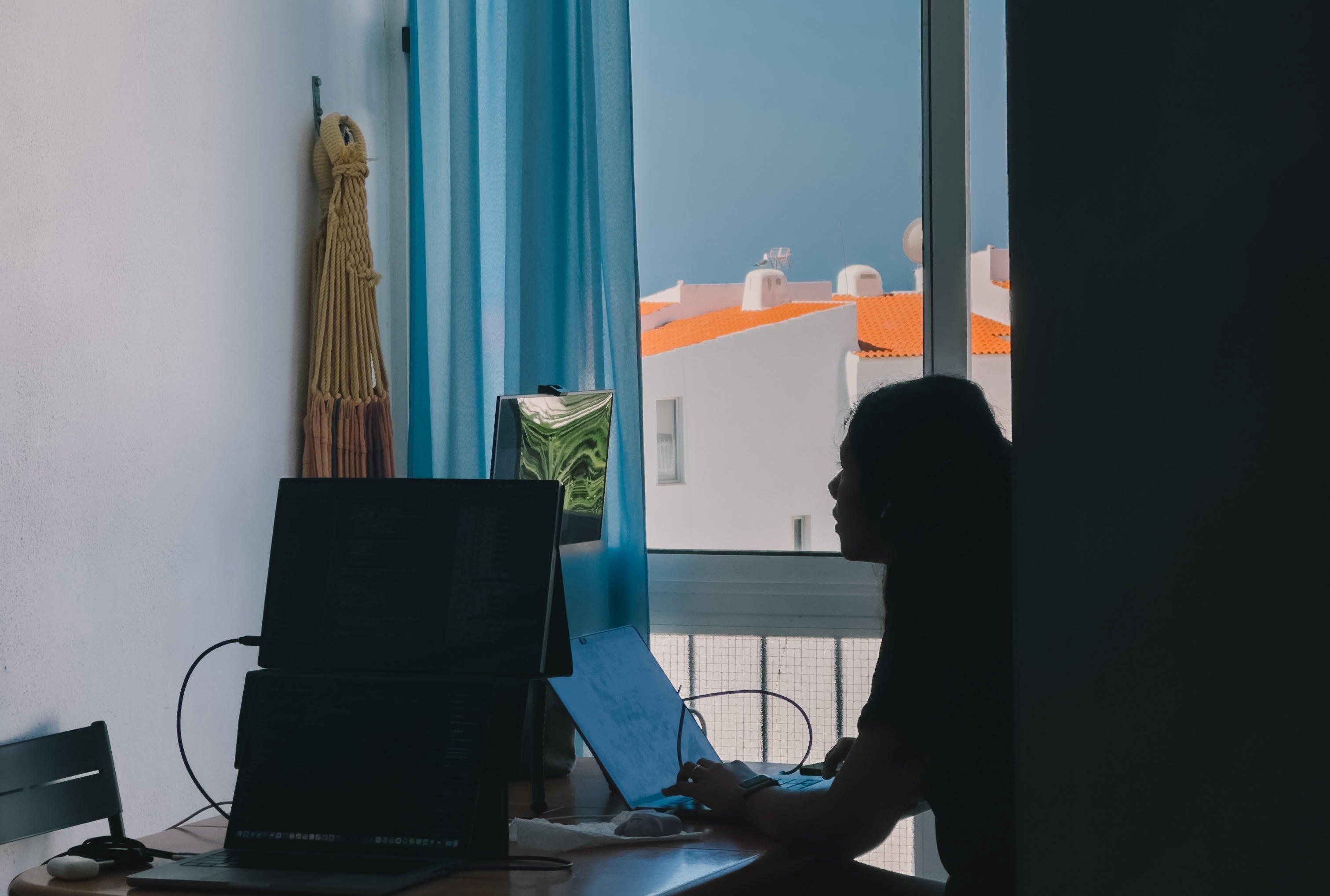We change cities / countries every 1-3 months.
While constantly changing locations is fun, it also means we don’t have a constant, stable workspace and routine.
If we’re not careful, sometimes it affects our productivity at work.
So far, these are the tips we’ve developed over the past 2 years as digital nomads to stay productive:
Workspace
- Ensure there is a large enough table. An uncomfortably small workspace is distracting. Before booking an apartment, we always inspect the photos to make sure there is a big enough table. Airbnb has a dedicated workspace filter but I find that it’s not good enough.
- Ensure there is good WIFI. Before booking an apartment, we check the reviews for mentions of good wifi or people saying they’ve worked from there recently. If there are none, we message the host to ask if they have fibre internet or if they can run a test on speedtest.net (40mbps is probably the min. for video calls). Some sites like https://thewirednomad.com help you narrow down good internet more quickly. But it doesn’t work well for all places. Personally i’ve found regular searching and checking still the best.
- Buffer at least one day after moving in to “setup”. Nothing wrecks productivity more than not knowing where the cups are, where to get drinking water, where to get food, needing to shift workspace in the middle of a workday because the sun there is too hot etc. We always try to leave one day to settle in before starting work.
- Natural light. We stayed in an apartment with no natural light once (there were windows but we had to close them because they were facing the street and we didn’t want people looking in all the time). It was terrible and we felt sleepy all the time. Now we always look for apartments with brightly lit workspaces. Even better if there is a view.
- If no available apartments suitable for working, find one near a co-working space. We usually prefer to work in our apartment because its nice to have a stable environment with 24 hour access to (sometimes we need to work at night due to timezones). But sometimes we just can’t find the right apartment within our budget (e.g. in tokyo most apartments are too small). In those cases we looked for an accommodation with a viable working space attached (e.g. hostel with their own cafe, or near a coworking space).
Work setup
- Portable monitors. A second screen is a must-have for us, especially for multi-tasking and presenting on video calls. We specifically looked for models that are brighter than average (400-500 nits) because many of the cheap ones are too dim even in medium-lit settings (I know that because I wasted money on one for my first buy). We got ours from uperfect but the specific models are no longer available. I’d recommend checking for unbiased reviews before buying. This website collates unbiased comments across Reddit to help people narrow down to the tried and tested ones. This website is also pretty handy to narrow down based on specs. We also prop it up to eye level to reduce neck strain.
- Carry around an extension power cord. You never know where the electrical outlets in your next apartment are. We often end up working on the dining table and sometimes there are no sockets nearby. Sometimes we move the table around too (e.g. to face the view when working) and the extension cord makes that possible. We use a regular extension cord, but if anyone has one that is extra compact and lightweight (bonus if its an international plug) please recommend!
Time zone differences
- We use Clocker (free Mac app). It’s great for checking what hours are sane for your coworker / client before proposing meeting times. An alternative is hovrly
- Add world clock to iphone lock screen. Handy to quickly check families and friends’ timezones. It uses iphone’s native clock app.
Routine
- Telegram channel to plan meals and groceries (with my wife). Constantly being in a new city means constantly having exciting opportunities to try new food. But that can also result in a lot more discussions on where, when and what to eat than if we stayed long term in one place. My wife and I have a telegram channel where we dump our groceries list and decisions for meals so we aren’t constantly rehashing those conversations and asking “what was the plan for lunch again?” in the middle of a work day.
- Mindset that work comes first (on workdays). Both my wife and I are on the same page that work comes first on a workday - same as if we weren’t working remotely. So nobody is upset that we are not doing enough sightseeing or the laundry isn’t being done during work hours.
Travel admin
- Notion to organize travel plans, flight, accommodation, insurance details etc. Notion is great because the organization is very flexible. You can always dump stuff in first without worrying about organizing it and then organize it later. And it works with pretty much every format (files, photos, links). Protip: If you have a university alumni email you might be eligible for a free account
- Having a checklist for moving. Moving is the most stressful part of this life. We use a checklist to go through before moving to help manage that:
- Download offline maps for new location
- Download offline language for google translate
- Research SIM options
- Research how to get cash (if needed)
- Plan how to get to the new accommodation
- Save documents (tickets, accom info) offline in phone
- Questions to ask new Airbnb host (drinking water, where to get extra toilet supplies etc)
Hope they’re helpful!
